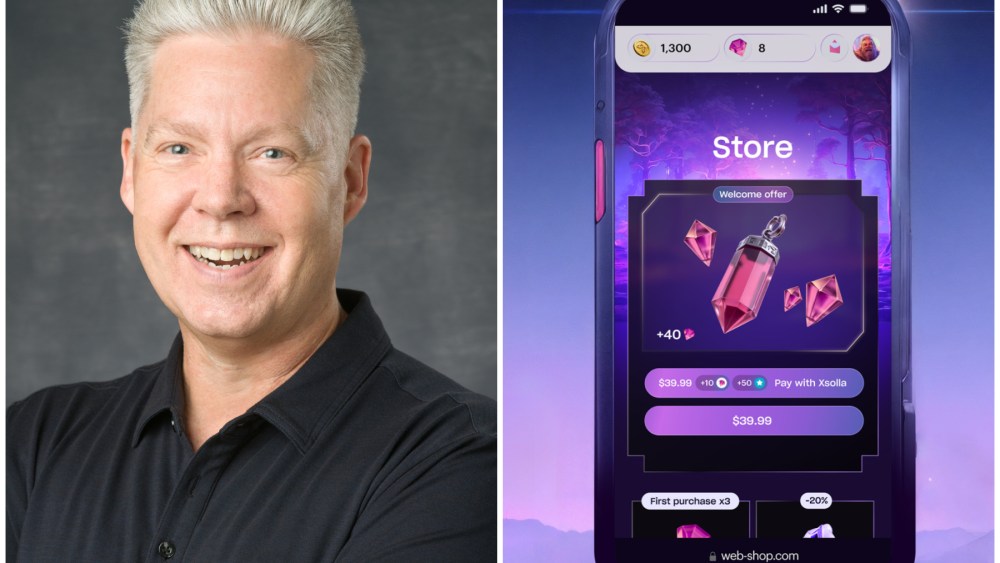Gamescom 2025 kicks off with its splashy Opening Night Live event Tuesday in Cologne, Germany. And while the buzzy presentation hosted by Geoff Keighley is certain to be the flashiest part of the annual video game industry convention — as it is the most live-streamed, consumer-facing portion of the week and sure to include teases for games including “Call of Duty: Black Ops 7,” “Resident Evil Requiem” and “Ghost of Yōtei” — it’s the conversations that will be held behind closed doors between gaming leaders this week that could shape the future of the sector.
There are four key areas developers and gaming execs should be discussing this week, per Xsolla president Chris Hewish, starting with the mobile gaming economy and its regulations — an area Xsolla, Xsolla, a financial technology company that makes payment software for video games, is uniquely interested in.
The recent U.S. ruling between Apple and “Fortnite” maker Epic Games, as well as EU enforcement of the Digital Markets Act (DMA) are allowing for alternative app stores and external payment systems to rise.
“We know that going direct to consumer is much more beneficial for the developers and the consumers,” Hewish told Variety. “So the ability now, through the Epic versus Apple ruling about anti-steering and some of the other things, the recent ruling about Google and Epic, the Digital Markets Act in Europe, that informs these large platforms that they have to allow apps to be able to tell their users about offers that are available on websites and off platform — all of this is coming kind of converging and creating an opportunity for game developers to do what already is done in other commerce, where you can have an app, you can go to a website, you can get your subscription on the website. All of this, it brings a lot of value, not just from a margin standpoint. It allows developers to begin using the full power of ecommerce, which is not available through the app stores, things like behavioral pricing, understanding your customer and presenting them with offers that are more appealing and relevant to them. Doing regular events and sales and specials and all of the things that we’re used to in every other industry, that’s now available to game developers by creating their own web shops and linking those to the apps and telling players, hey, here’s a hub where you can find out more about the hobby you love. And while you’re there, you can find special offers, VIP treatments, behind the scenes. You can link to other transmedia.”
Next up is the topic of generative AI — but this time not in a rehash of the same conversation devs have been having for the past couple years.
“AI continues to be a discussion, although I would say it has shifted from the headline-grabbing, almost-empty discussion of just, ‘Oh, AI!’ I think what will be discussed at Gamescom is much more the practical application of AI. I don’t know if those will necessarily happen in presentations, but they’ll certainly happen at get-togethers, when developers share, ‘Hey, how are you using this’” And fortunately, there has been a fair amount of adoption of AI and bringing it into workflows.
As layoffs continue at publishers big and small, and developers question the most stable path forward in an uncertain industry, Hewish says the power of the indie studio will come up: “There will obviously be discussion around layoffs and employment, and the indie games market. It’s always there, but it’s further fueled by these layoffs, the rise of the indie gaming market. There’s a little bit of a resurgence in what’s going on there.”
And last but not least: monetization.
“Business models will be a big point of conversation. That’s driven by a number of factors, where you have these forever games, these live ops behemoths that are really entrenched. And we’re seeing difficulty for new games that embrace the live ops model to break through for a whole host of reasons. It’s tough to peel players off. Discoverability is difficult, all of that. So I think there will be some discussion around live ops and free to play in general. I’m almost contradicting myself with what I’m going to say, because there’s some fatigue amongst players with live ops that’s more oriented towards new live ops games than existing games. At the same time, that entrenchment of established players, the fact that live ops games are now in later life cycles, they need ways to continue generating more revenue, the fact that indie games are coming in, all leads to a conversation around new business models. “
Looking ahead, Hewish sees hybrid models as the way to go.
“We’ve had our in-app purchase, free-to-play model, how do we take that to the next level? And you’re seeing a lot of games now that are really trying to look at the different player cohorts that they have and creating hybrid monetization that appeal to different player types. And the simple example of this, which has been around for a while, is you have your in-app purchases for your core, your whales, and then you’ve got advertising for all the people that aren’t spending right? So now that’s kind of evolving to you seeing quote, unquote subscriptions, which is a catch all category for things like battle passes and season passes. ‘Brawl Stars’ does a great job of this. But then on top of that, we’re starting to see various price points that are appealing to different segments of the player base. And so I think there’s a lot of expansion that’s happening in the monetization world.”

